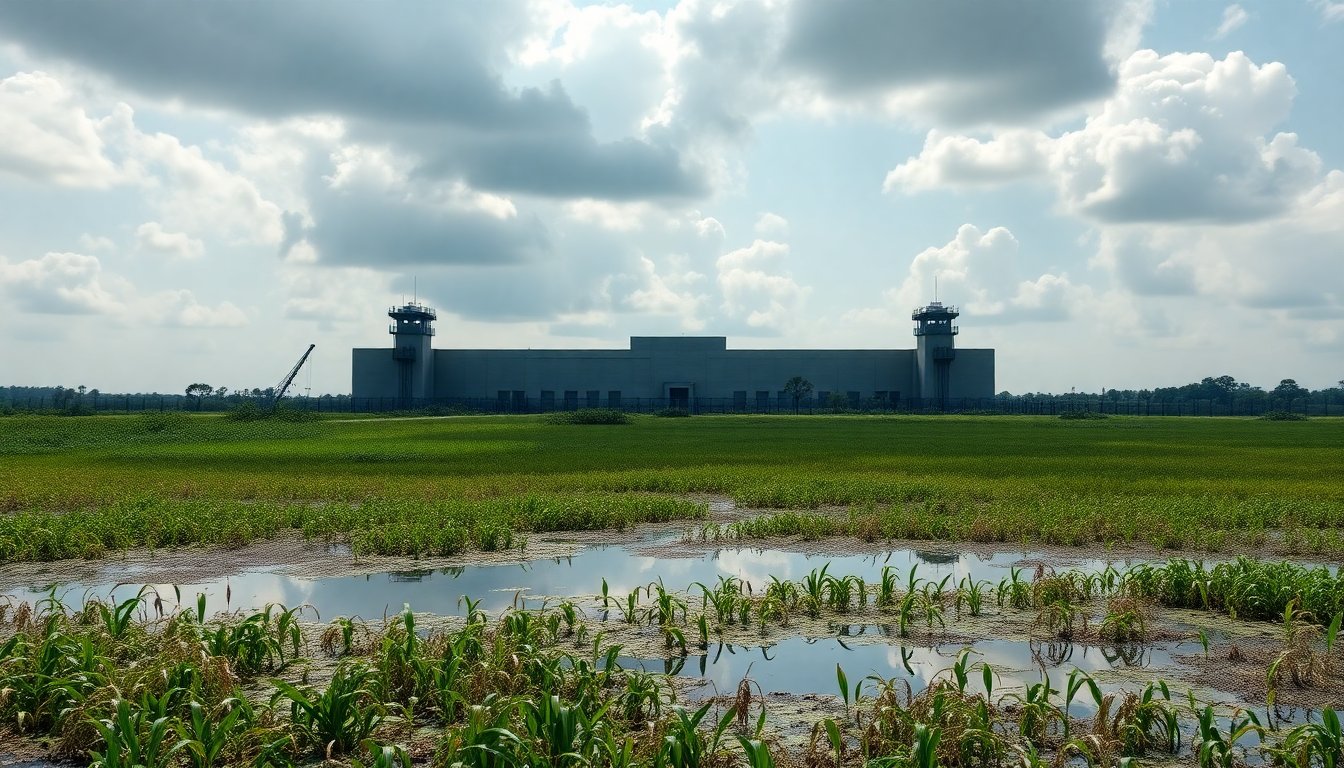Table of Contents
The Alligator Alcatraz immigration detention facility, located in Florida’s Everglades, has become a center of legal and environmental controversy. Recently, a federal appeals court issued a temporary stay on a lower court’s ruling aimed at indefinitely halting operations at this contentious facility. This situation highlights the intricate relationship between immigration policy, environmental concerns, and the legal frameworks surrounding detention centers in the United States.
Current Legal Status and Judicial Decisions
On a significant Thursday, the federal appeals court intervened, issuing a stay on an order from U.S. District Judge Kathleen Williams. Judge Williams had previously blocked any further expansion of the Alligator Alcatraz facility and mandated a reduction in its operations by the end of October. Her decision was a response to a lawsuit led by environmental groups such as Friends of the Everglades and the Center for Biological Diversity. These groups argued that the facility was constructed without the necessary federal environmental reviews, potentially endangering the fragile ecosystems of the wetlands.
This lawsuit underscores the ongoing tensions between state and federal authorities. Governor Ron DeSantis’ administration rapidly developed the detention center to align with former President Donald Trump’s immigration policies. The facility was built at a training airport in the Everglades, designed to deter potential escape attempts by migrants. Trump has endorsed the facility, proposing it as a model for similar operations across the country.
Environmental Implications and Community Responses
Elise Bennett, a senior attorney at the Center for Biological Diversity, expressed disappointment over the appellate court’s decision, calling it a significant setback for the Everglades and its diverse wildlife. The environmental consequences of the detention center are substantial, with activists asserting that its presence threatens the delicate balance of the region’s ecosystem, which harbors several protected species.
Despite the legal victories for proponents of the facility, the case remains unresolved. The plaintiffs are determined, insisting that the Alligator Alcatraz will ultimately face closure due to its harmful environmental impacts. Eve Samples, executive director of Friends of the Everglades, voiced concerns that resuming operations at the facility would be a misallocation of resources, considering the long-term sustainability issues associated with its existence.
Future Outlook and Political Ramifications
The appeals court’s stay has reignited discussions about the future of immigration detention facilities nationwide. As the political landscape shifts, operations at Alligator Alcatraz are likely to remain a contentious issue, influencing both immigration enforcement and environmental conservation. The Department of Homeland Security has characterized the ruling as a win for law enforcement, asserting that the lawsuit’s primary aim is to obstruct efforts to remove criminal aliens from communities.
Looking forward, the ongoing legal battles surrounding the Alligator Alcatraz facility will encapsulate broader national debates concerning immigration policy, environmental responsibility, and the dynamics between state and federal jurisdiction. Developments in this case will be closely watched by advocates on both sides, as the stakes are high for the future of the Everglades and the immigrants impacted by these policies.


